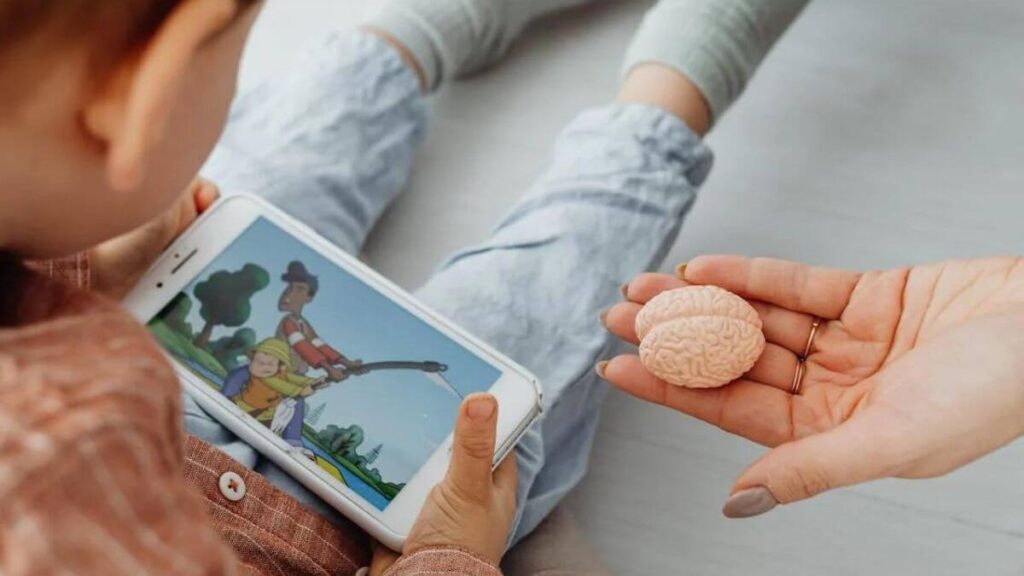Is technology ruining childhood?

Is technology ruining childhood? The impact of technology on childhood is a hot topic these days. With gadgets and screens becoming a constant presence, many parents worry about their effects on kids’ development.
In this article, we’ll explore how technology is shaping childhood experiences, from playtime to learning, and discuss ways parents can find a healthy balance. Let’s dive into this modern parenting challenge and see if tech is stealing the magic of growing up.
Table of Contents
What is the impact of modern technology on childhood?
Modern technology significantly impacts childhood by affecting daily routines and development. Kids today are growing up in a world filled with smartphones, tablets, and video games, which can offer educational benefits and potential distractions.
While technology provides easy access to information and learning resources, it also poses challenges, such as reduced physical activity and face-to-face social interactions.
Educational apps and online learning platforms can enhance a child’s knowledge and skills, making learning more engaging and interactive. But, excessive screen time can lead to issues like eye strain, sleep problems, and decreased attention spans.
However, parents and caregivers play a crucial role in finding the right balance, ensuring that technology supports healthy growth and development. By setting boundaries and encouraging a mix of tech and traditional play, we can help children enjoy the benefits of technology without missing out on essential childhood experiences.
How is modern technology changing playtime?

Modern technology is changing playtime by shifting kids from traditional outdoor games to digital entertainment, impacting their creativity and physical activity. While video games and apps can stimulate the mind and offer new play methods, they often keep children indoors and less physically active.
This shift means kids might spend more time on screens and less time exploring their surroundings, which can limit their imagination and social skills development. Balancing screen time with outdoor play is essential to ensure children stay active, creative, and socially engaged.
Is technology affecting children’s social skills?
Yes, technology is affecting children’s social skills by increasing screen time and online interactions, which can hinder their face-to-face communication abilities. Kids who spend more time on devices might struggle with in-person social cues and building strong relationships.
While chatting online or playing multiplayer games can connect children virtually, it doesn’t replace the nuances of real-life interactions. They might miss out on learning how to read body language, tone of voice, and facial expressions, which are crucial for effective communication. Encouraging balanced tech use with regular in-person activities can help kids develop well-rounded social skills.
How does technology impact learning and education?

Technology impacts learning and education by offering positive and negative effects on children’s educational experiences and academic performance. On the positive side, technology provides access to vast resources, making learning more engaging and interactive. However, it also poses challenges like distractions and potential over-reliance on digital tools.
Digital platforms and educational apps can make lessons more dynamic and cater to different learning styles. For instance, interactive simulations and videos can make complex concepts easier to understand. Additionally, online resources enable students to learn independently and access information anytime.
On the downside, excessive screen time can lead to distractions and a shorter attention span, making it harder for children to focus on traditional studying methods. Furthermore, reliance on technology may hinder the development of critical thinking and problem-solving skills, as kids might lean towards easy online answers instead of working through problems independently.
What are the potential health risks of technology for children?
The excessive use of digital devices poses several health risks for children, affecting their physical and mental well-being.
- Eye strain and vision problems: Prolonged screen time can lead to digital eye strain, which can cause headaches, blurred vision, and discomfort.
- Poor posture: Sitting for long periods while using devices can result in poor posture and musculoskeletal issues, such as back and neck pain.
- Sleep disturbances: The blue light emitted from screens can interfere with melatonin production, disrupting sleep patterns and leading to poor-quality sleep.
- Obesity: Increased sedentary behavior due to screen time reduces physical activity, contributing to weight gain and obesity.
- Mental health issues: Excessive screen time has been linked to anxiety, depression, and increased stress levels in children.
- Social skills development: Overuse of technology can limit face-to-face interactions, hindering the development of crucial social and communication skills.
How can parents find a balance with technology?
Here are a few tips and strategies for parents to manage their children’s technology use effectively:
- Set clear rules: Establish guidelines for screen time, including when and where devices can be used.
- Encourage tech-free activities: Promote outdoor play, reading, and hobbies that don’t involve screens.
- Model good behavior: Show responsible tech use by limiting screen time and engaging in family activities.
- Create tech-free zones: Designate areas in the home, like the dining room or bedrooms, as tech-free spaces.
- Monitor content: Keep an eye on the apps, games, and websites your children use to ensure they are age-appropriate and educational.
- Use parental controls: Utilize built-in parental controls on devices to restrict inappropriate content and set usage limits.
- Promote physical activity: Encourage regular physical exercise to offset sedentary screen time.
- Foster social interactions: Arrange playdates and encourage participation in group activities to develop social skills.
Conclusion- Has technology ruined childhood or enhanced it?
The impact of technology on childhood is a mixed bag, offering both benefits and challenges. On one hand, technology can enhance learning, creativity, and connectivity, providing children with access to a world of information and new ways to play and communicate.
On the other hand, it can detract from physical activity, social skills, and face-to-face interactions, posing health and developmental risks. Finding a balanced approach helps ensure that children enjoy the advantages of technology while minimizing its downsides.
Read more: Technology and Livelihood Education Real-Life Educational Experience
